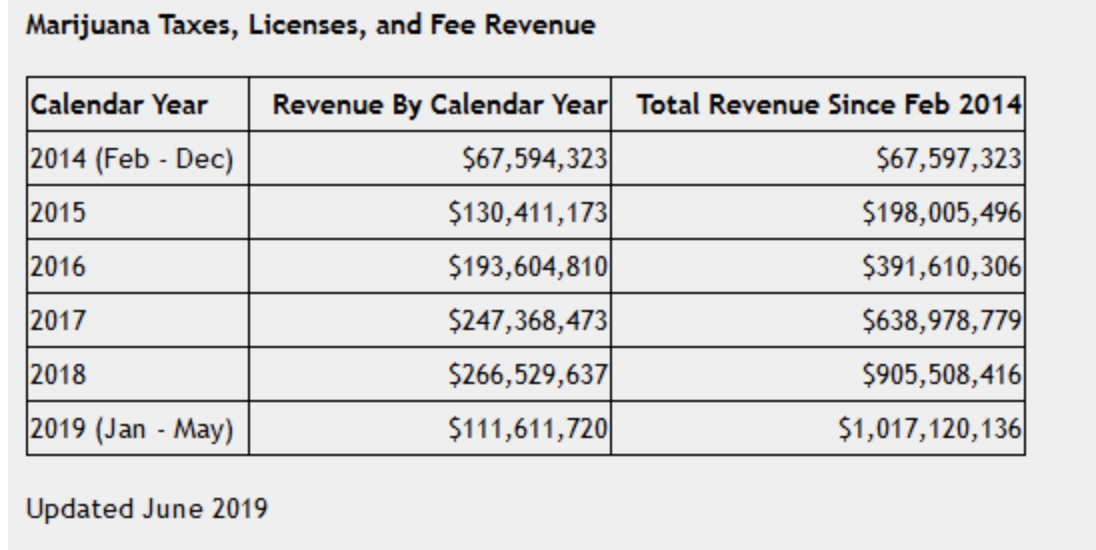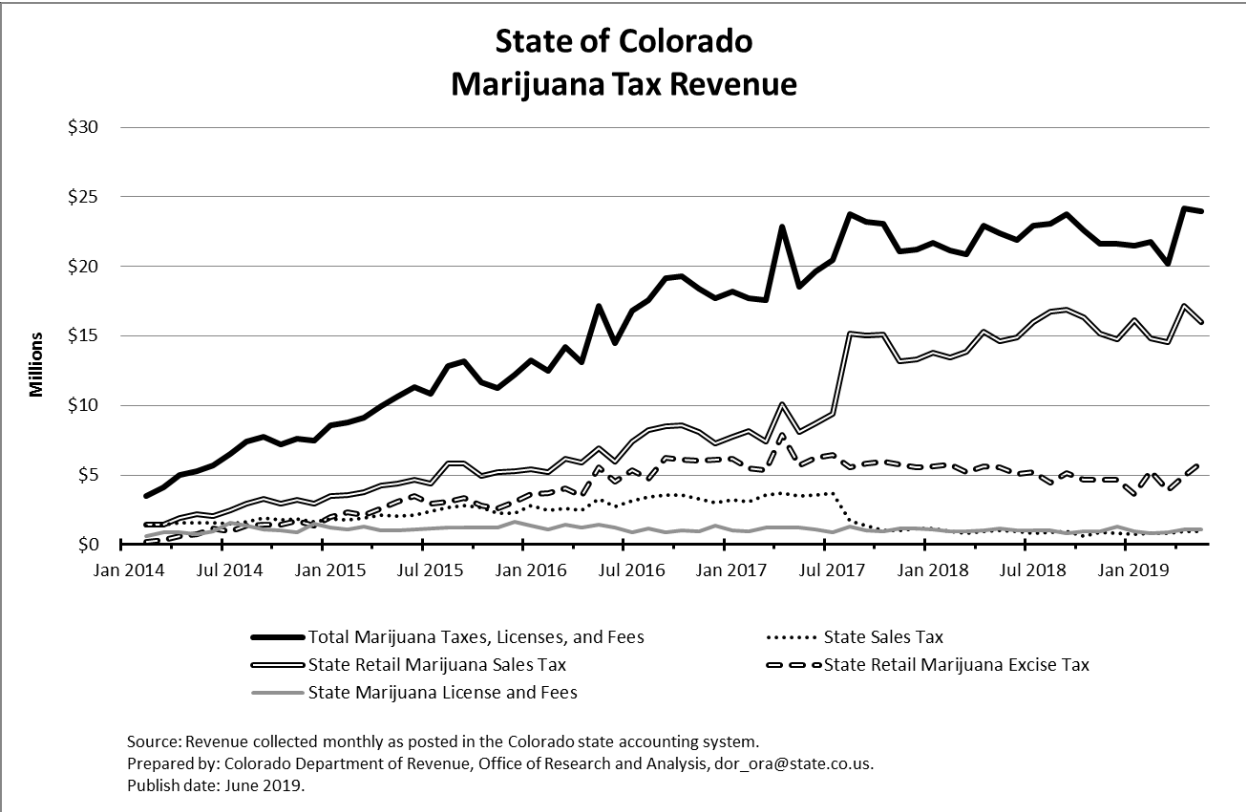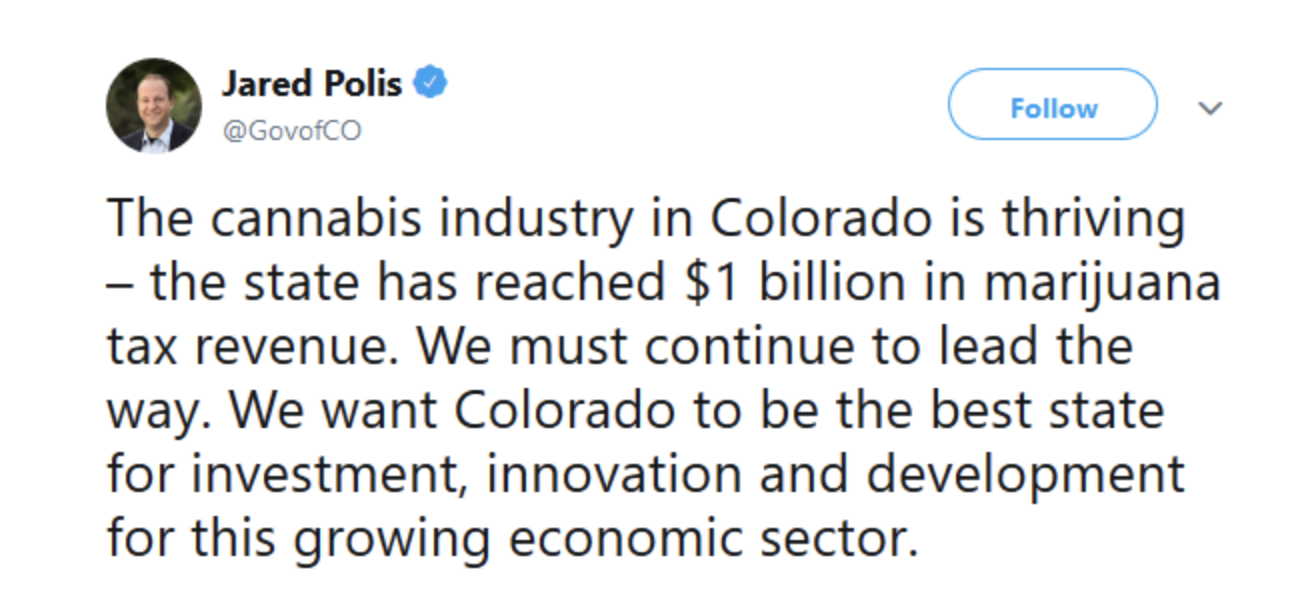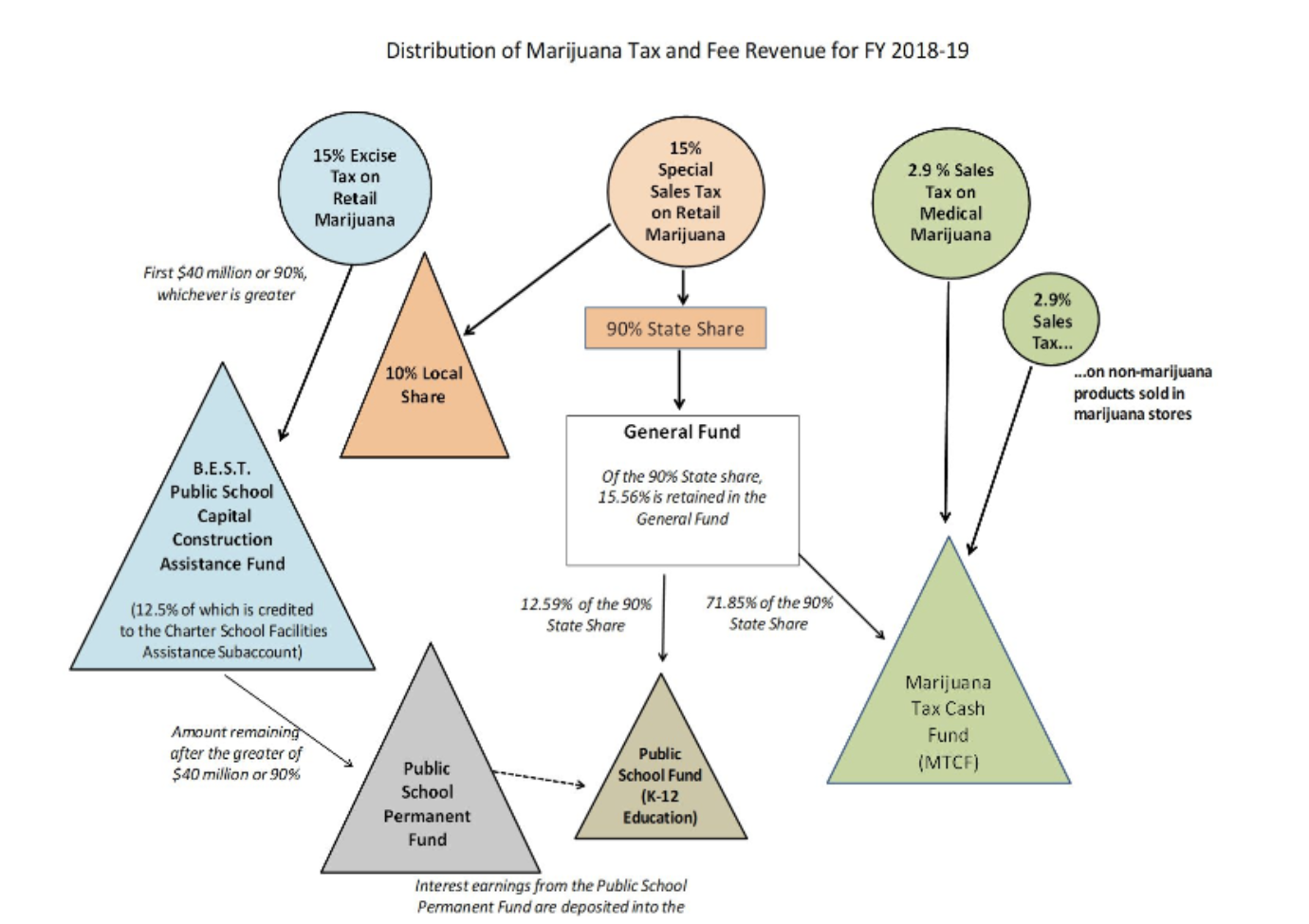Marijuana might still be illegal under federal law--but that’s hardly stopping federal governments from collecting billions of dollars in fees and taxes on the burgeoning industry. One such government is Colorado, with current Gov. Jared Polis (D) recently revealing that the state has collected more than $1 billion in cumulative cannabis tax revenue, a nearly 300 increase from the annual run rate five years ago.
The state’s licensed cannabis retailers have sold marijuana products worth $6.56 billion since legal sales began five years ago following voters’ approval via ballot in 2012. Since then, the state has netted around $1.02 billion in taxes and fees from that activity.

Source: Colorado.gov
Former Colorado Gov. John Hickenlooper (D), a 2020 presidential candidate, has rubbished the state’s earnings as a ‘‘drop in a bucket.’’ Well, a billion or two might not seem like much for a state that collects $50 billion or so in federal taxes each year.
But Polis says it’s quite a big deal.
The governor has revealed that marijuana taxes go well beyond paying for the implementation and enforcement of industry regulations, with the industry helping grow the local economy by creating thousands of new jobs and generating valuable tax revenue that’s being pumped into important programs such as protecting public health, preventing youth consumption and investing in public school construction.

(Click to enlarge)

(Click to enlarge)

Source: Colorado.gov
Fiscal panacea
Brian Vincente, founding partner of the law firm Vicente Sederberg LLP and lead co-author of the state’s marijuana laws has conceded that nobody has been under the illusion that marijuana legalization would be a fiscal panacea for cash-strapped federal governments. Yet, he points out that the taxes being collected from the industry are already having a substantial and positive impact which is only expected to grow as the years roll on.
Related: Kremlin Moves To Dump The Dollar
As Mason Tvert, another co-author of the legalization ballot initiative makes the case for more states to legalize marijuana stating that they are flushing billions of dollars down the toilet by keeping marijuana sales an illegal market.
And, he’s spot on. In 2017, the U.S. government collected only $4.7 billion tax revenue on sales of $13 billion from the cannabis industry, a drop in the bucket for the more than $3 trillion it collects in tax revenues every year. Bear in mind that marijuana for non-medicinal use is legal only in nine states and taxable in just seven.

(Click to enlarge)

(Click to enlarge)
Source: Quartz
Marijuana companies face a pretty hostile tax environment. First off, they are not allowed any tax deductions or credits for business expenses which can mean effective federal tax rates of as high as 90 percent. Hemp producers are luckier since recent changes to the law now allows them to deduct ordinary business expenses for tax purposes on condition that their products contain no more than 0.3 percent THC.
Second, most banks and financial institutions will not touch them with a 10-foot pole, meaning they have to pay their taxes in cash and not through checks or electronic means.
Yet, they continue to tough it out, making an important mark where they are officially recognized. According to the Tax Policy Center, states with marijuana taxes are obligated to put a portion of their funds toward important social programs ranging from education programs in Colorado and Nevada to administrative costs in California and crime reduction in Alaska.
Luckily, the IRS is trying to get a handle on the situation and hopefully, cannabis companies will soon be able to enjoy the same benefits that other industries take for granted.
By Alex Kimani for SafeHaven.com
More Top Reads From Safehaven.com:
















